Ms. Thu, 51 years old, had "elephant legs" for many years after cervical cancer treatment, and had surgery to relieve symptoms.
Ms. Thu in Tan Binh District, Ho Chi Minh City) discovered cervical cancer 5 years ago. She had a total hysterectomy, then chemotherapy and radiation therapy to eradicate the cancer. Two years later, her left leg showed signs of swelling, making it difficult to walk. After going to a medical facility, she was diagnosed with lymphedema, and treated with internal medicine combined with physical therapy.
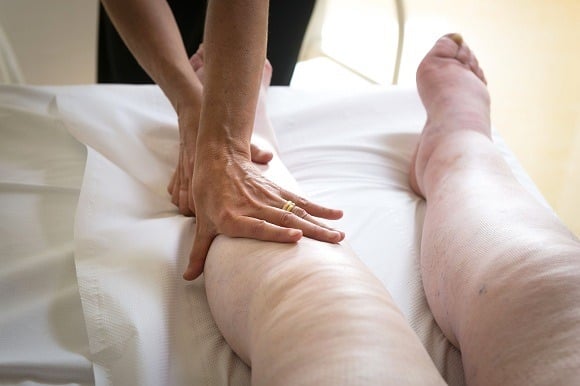 |
| Illustration photo. |
Over the next 3 years, she went to many hospitals and received aggressive conservative treatment but it was ineffective. Her leg became increasingly swollen, heavy and stiff, making it difficult to walk. In July 2024, she went for a check-up.
Dr. Nguyen Anh Dung, Head of the Department of Cardiovascular and Thoracic Surgery, Cardiovascular Center, Tam Anh General Hospital, Ho Chi Minh City, said that the lymphatic system is an important part of the immune system, helping the body fight pathogens, foreign objects and deformed cells (such as cancer).
In addition, the lymphatic system is responsible for balancing body fluids from cells and tissues and returning them to the circulatory system. When the lymphatic system is not working properly, lymph fluid will stagnate in the tissues, leading to swelling and pain. The disease usually affects the arms or legs, but can also occur in the chest wall, abdomen, neck and genitals.
Ms. Thu had an MRI scan of the lower limb lymphatic system, which determined stage 2 lymphedema of the left leg (stage 3 is the most serious), which cannot be treated medically and requires surgery to reduce symptoms.
Lymphedema is divided into two types: Primary (rare, inherited or congenital condition caused by a defect in the lymphatic system) and secondary (accounting for 99% of lymphedema cases in adults).
The condition occurs when the lymphatic vessels cannot drain lymph fluid, usually from the arms or legs. The most common causes of lymphedema include cancer (tumors growing near lymph nodes or lymph vessels can enlarge enough to block the flow of lymph fluid), radiation therapy for cancer (radiation can cause scarring and inflammation of lymph nodes or lymph vessels), surgery for cancer involving lymph node dissection, and parasitic infections (thread-like worms that block lymph nodes).
"In Ms. Thu's case, the disease progression is likely due to the consequences of multiple chemotherapy and radiotherapy treatments for cervical cancer," said Dr. Hoai.
According to doctors, if lymphedema is not treated early and properly, it will cause serious complications including: skin infection (cellulitis), sepsis (untreated cellulitis can spread into the blood and cause sepsis), skin leakage (when swelling is severe, lymph fluid can flow through small cracks in the skin or cause blisters), skin epidermal changes (thickening and hardening like elephant skin), cancer (a rare form of soft tissue cancer is a result of severe untreated lymphedema).
According to Dr. Dung, lymphedema is a difficult disease, although not life-threatening, it causes a lot of trouble for the patient when it occurs. Previously, the disease was almost exclusively treated with internal medicine, but in some cases, the disease progressed severely and internal medicine treatment was ineffective.
Recently, with the strong development of microsurgical techniques and equipment, surgical intervention methods are being applied to restore the lymphatic system such as lymphatic vein bypass surgery and lymph node transplantation.
In which, lymphatic vein bypass surgery is an invasive, palliative treatment for severe lymphedema cases that respond poorly to medical treatment.
Currently, lymphedema treatment by supermicrosurgery lymphatic-venous bypass is the preferred choice due to its many advantages and low risks.
To perform this method, the operating room must be equipped with specialized instruments, high-resolution microscopes, microsurgical instruments, and ICG fluorescein lymphangiography. In addition, the surgeon must be highly skilled and experienced in general vascular surgery.
Lymphedema is often confused with other causes of edema and limb enlargement such as capillary malformations, lymphatic malformations, venous malformations, infantile hemangiomas, kaposiform vascular endothelioma, CLOVES syndrome, Klippel-Trénaunay syndrome, Parkes-Weber syndrome, hemihypertrophy, lipoedema, lipofibromatosis, obesity, post-traumatic swelling...
When you see unusual symptoms such as joint stiffness, poor joint mobility; swollen arms, legs or other areas of the body, feeling heavy, burning or itchy; noticeably thicker skin, you should see a doctor soon, especially people at high risk of lymphedema such as cancer patients, after radiation therapy.
Source: https://baodautu.vn/mang-chan-voi-nhieu-nam-do-phu-bach-huyet-d222976.html








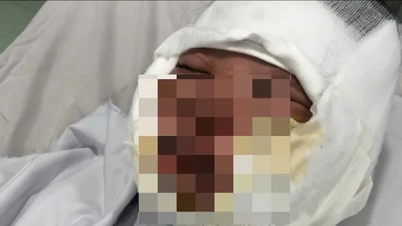







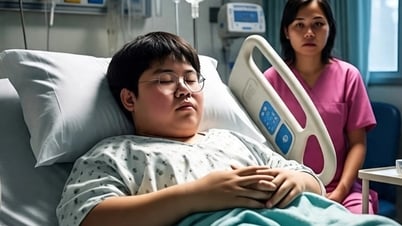




























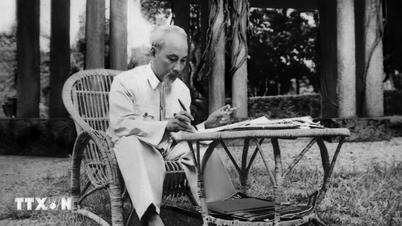






![[Maritime News] Wan Hai Lines invests $150 million to buy 48,000 containers](https://vphoto.vietnam.vn/thumb/402x226/vietnam/resource/IMAGE/2025/6/20/c945a62aff624b4bb5c25e67e9bcc1cb)











![[Infographic] Party Committee of the Ministry of Culture, Sports and Tourism: Marks of the 2020 - 2025 term](https://vphoto.vietnam.vn/thumb/402x226/vietnam/resource/IMAGE/2025/6/22/058c9f95a9a54fcab13153cddc34435e)













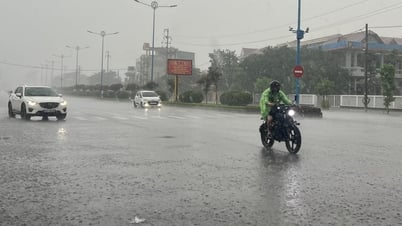













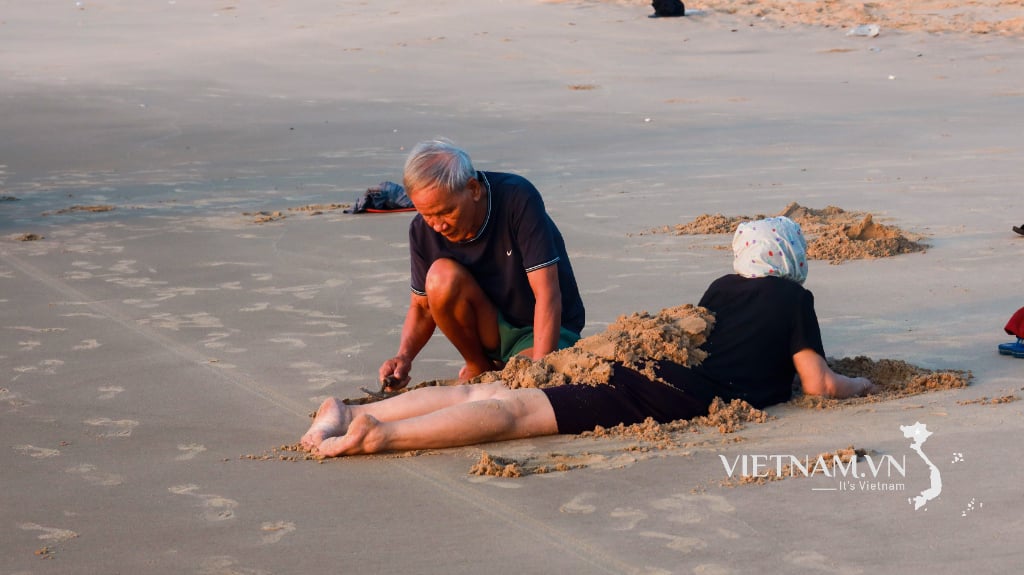

Comment (0)